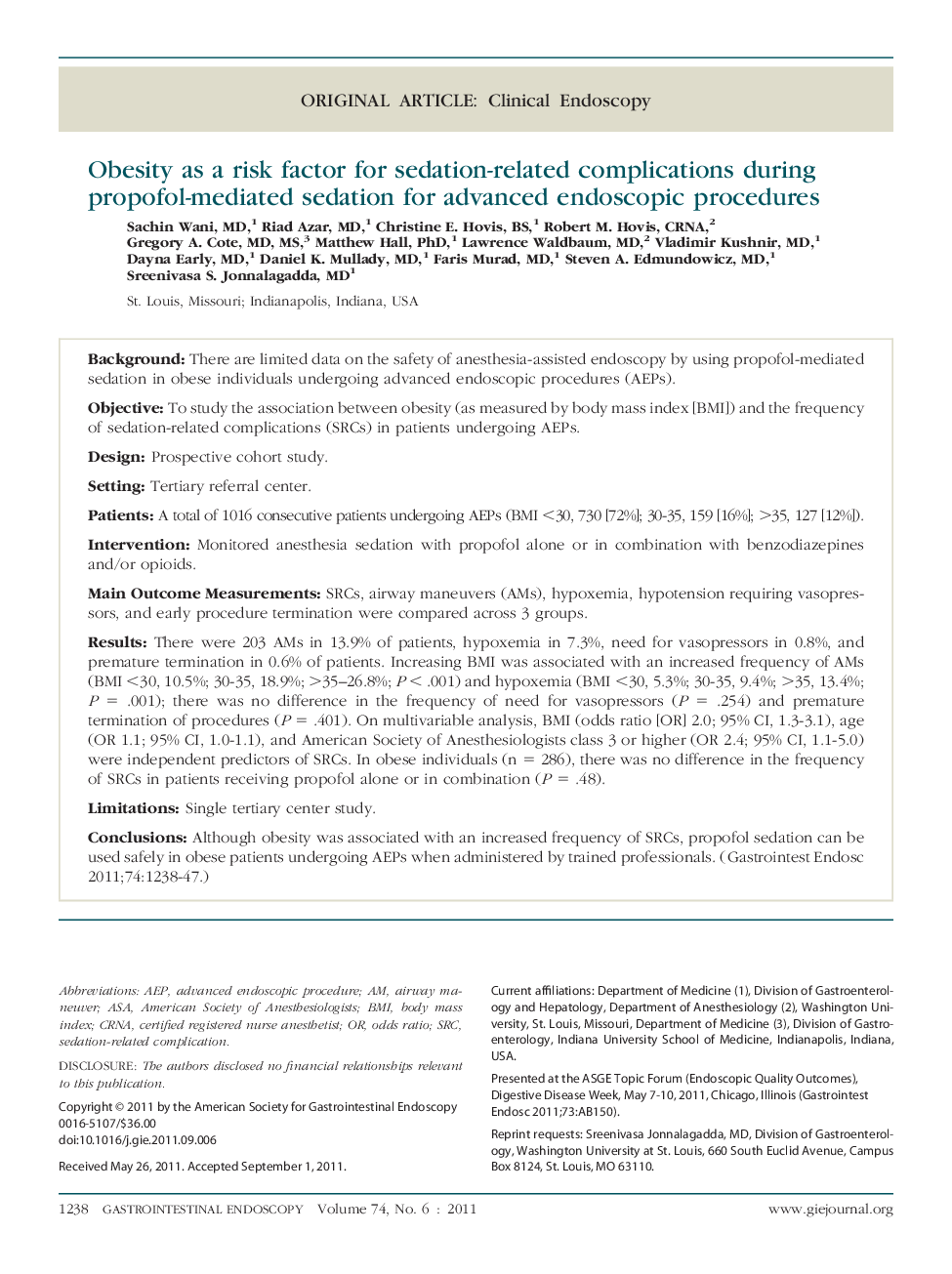| کد مقاله | کد نشریه | سال انتشار | مقاله انگلیسی | نسخه تمام متن |
|---|---|---|---|---|
| 3305051 | 1210347 | 2011 | 10 صفحه PDF | دانلود رایگان |

BackgroundThere are limited data on the safety of anesthesia-assisted endoscopy by using propofol-mediated sedation in obese individuals undergoing advanced endoscopic procedures (AEPs).ObjectiveTo study the association between obesity (as measured by body mass index [BMI]) and the frequency of sedation-related complications (SRCs) in patients undergoing AEPs.DesignProspective cohort study.SettingTertiary referral center.PatientsA total of 1016 consecutive patients undergoing AEPs (BMI <30, 730 [72%]; 30-35, 159 [16%]; >35, 127 [12%]).InterventionMonitored anesthesia sedation with propofol alone or in combination with benzodiazepines and/or opioids.Main Outcome MeasurementsSRCs, airway maneuvers (AMs), hypoxemia, hypotension requiring vasopressors, and early procedure termination were compared across 3 groups.ResultsThere were 203 AMs in 13.9% of patients, hypoxemia in 7.3%, need for vasopressors in 0.8%, and premature termination in 0.6% of patients. Increasing BMI was associated with an increased frequency of AMs (BMI <30, 10.5%; 30-35, 18.9%; >35–26.8%; P < .001) and hypoxemia (BMI <30, 5.3%; 30-35, 9.4%; >35, 13.4%; P = .001); there was no difference in the frequency of need for vasopressors (P = .254) and premature termination of procedures (P = .401). On multivariable analysis, BMI (odds ratio [OR] 2.0; 95% CI, 1.3-3.1), age (OR 1.1; 95% CI, 1.0-1.1), and American Society of Anesthesiologists class 3 or higher (OR 2.4; 95% CI, 1.1-5.0) were independent predictors of SRCs. In obese individuals (n = 286), there was no difference in the frequency of SRCs in patients receiving propofol alone or in combination (P = .48).LimitationsSingle tertiary center study.ConclusionsAlthough obesity was associated with an increased frequency of SRCs, propofol sedation can be used safely in obese patients undergoing AEPs when administered by trained professionals.
Journal: Gastrointestinal Endoscopy - Volume 74, Issue 6, December 2011, Pages 1238–1247